Google Rating
5.0
Based on 363 reviews

Our Sleep Guide Online Mattress Showroom Houston
5.0
Laura Mason
1713210165
I was thrilled to find the store that had the online mattresses I had been resesarching. I couldn't pull the trigger without actually testing it out. They had a great selection of many that were well rated online. I could not find a hybrid model to test when I was calling around, but they had it!I ended up getting a better mattress at a better price than the one I thought I was going to get thanks to the fantastic customer service of Niko. Thank you!
Taylor Tokarz
1713129225
Jennifer was extremely helpful, knowledge, and warm; we quickly found (and bought) a mattress we love!
Mynor Ivan Arana
1713049681
Fantastic store and fantastic staff. Online manufacturers like nectar and others are hard to commit to without being able to try the mattress out. Glad I found this place with an assortment of online brands and I got to try all of them out and take one home the same day without waiting for shipping. I was glad I got to see all the major online brands side by side and confirm their product. They even beat the online discounted pricing!!!! 10/10.
Julio Murillo
1713044285
Great place to purchase a mattress i love that they have a showroom and are able to test out the mattress. Nico was amazing.
Diana Rivas
1713044040
Visited this mattress store today and was blown away with prices and Nico’s expertise. Thank you so much I’m very satisfied with my purchase.
Joanne Gonzalez
1712852285
Helpful showroom manager. Discount was greater than if I ordered myself online. Nice to try the beds in person.
Jonathan Klinvex
1712520755
I worked with Tia and she was incredibly helpful. This is a great spot to test out all the internet, mattress-in-a-box brands. Definitely recommend coming here instead of doing hours of internet research.
Steven
1712187442
Came in for a Helix mattress and Tia was very helpful and knowledgeable about getting us our mattress that best suited my wife and IHighly recommend checking them out for mattress needs
Taryn Lachter
1712099760
I hate mattress shopping - I don’t know who likes it. And the whole idea of buying a giant king bed online without trying it freaks me out. But this store has literally all of them, all the popular ones that are super highly rated and we actually got to try them! Jennifer was super helpful and understood what we needed and directed us to THE most comfy bed either of us have ever slept on. Easy sales experience, super nice bed, clean store. Least painful mattress buying experience of my life!
Brandon Law
1712082560
A must visit on your next buying adventure! I always wondered, what if I could try all those beds in a box that I get targeted ads for. Well, now you can!Jennifer was great and very patient as we tried each and every one. Much better deals than purchasing direct!
Chris Sowa
1711302886
I recently visited Our Sleep Guide Austin and had the pleasure of being assisted by Jennifer. Her knowledge and expertise made my shopping experience exceptional. She took the time to understand my needs and preferences, ultimately helping me find the perfect bed. Her friendly demeanor and professionalism truly stood out. I highly recommend stopping in to find the perfect bed!
Anthony Young
1711219462
Great experience! Niko Blair did an amazing job showing us all 6 mattresses on our hit list and even brought out a mattress from the back for us to try as well. Will definitely return for future needs.
Jay
1710185285
I love this place wanted to get mattress that most places don't cary cuz they have it online and I got try it out it felt good so I made the purchase!!! Ready to get my bed just waiting on the delivery!!!Everything was very easy to get ordered!!! Big thanks to Niko for helping me through the process!!!
Stacy Johnson
1709418846
Jen was awesome and so informative. Didn’t feel like a typical mattress store. So excited for our new bed! Thank yall!!!
Kurt Nelson
1708970432
Update: Our Helix Sunset Luxe arrived 2/24 on time and with no damage. In fact, the driver helped me bring the mattress into the house. We picked up the adjustable bed frame. The frame (though heavy) was easy to put together and get set up. We put the mattress on the frame, unrolled the plastic wrap and allowed the mattress to breathe and fully expand. A few hours later, we put on the bedding and tried everything out. The setup is super comfortable and a dramatic improvement over our old mattress. A great all around experience.Original review: What a great concept of a store that more people need to know about. This shop displays and sells mattresses made by the online retailers like Helix, Avocado, etc. But, you don’t need buy blindly online and do the 100 night trial because the mattresses are there to see and try out. Very convenient and smart. When ordering, the mattresses come directly from the online retailer just as if you ordered online. Our Sleep Guide gives the same (and sometimes better) pricing of the online retailer. However, the best part of the process is Justin, Jennifer and Tia. Very professional, superb product knowledge and not pushy at all. In fact, with Jennifer’s guidance, we avoided making the wrong purchase for my son’s mattress. I have no affiliation with this company. Just a 100% satisfied customer.
Trudy Richards
1708378030
A great place to try out so many online mattress options before purchase! Plus Tia was helpful without being overbearing. Highly recommended!
Alana Phillips Fry
1708369967
Stopped in today to try out a few mattresses. The showroom had several brands and selections. Tia was so kind and helped us narrow down our decision. I highly recommend this location.
River Phillips
1708368472
Tia and Justin were wonderful representatives to help us decide on the perfect mattress. Would highly recommend for anyone interested in popular online mattress brands!
Alyssa Borowy
1708363473
Great customer service, store is nice and clean. My husband and I had a great experience and love our mattress!
Jeff Gordon
1708291242
Tia was very helpful and knowledgeable without being pushy. Great experience. Highly recommend.
Jennifer Allen
1708196046
Have had such a great experience here with Jennifer. I came in looking for a different mattress and she helped me find a better mattress!
Javier Longoria
1708110219
They have a good selection of online mattresses to try, Niko was great, answered all my questions about the differences between the brands/materials used.
Rory Callahan
1707684537
We came in here to find our mattress and had a very pleasant time. Jennifer answered all of our questions and was incredibly helpful, kind, and patient. She’s great!
Phoebe Belser
1707680431
Niko was the best & so helpful! We got the helix midnight luxe for several hundred dollars cheaper than it would’ve been on the helix website & we were able to bring it home with us. Would definitely recommend.
E H
1707522419
This place is awesome. Jennifer was so helpful and we walked away with exactly what we needed. Trying it out before buying saved us a huge headache. The mattresses are very different from what you read about them online! So go wear your pj's in and take a test nap!!
Ruta Venclauskas
1707078669
Extremely friendly, knowledgeable and helpful to my elderly parents. Took lots of time with them and gave them space to discuss.
Clifford LeJeune
1707074987
We went into the showroom with my brother and sister-in-law when we met Niko. He was chill and didn't push products, which is so nice when purchasing a long-term product. He was knowledgeable about the mattresses, bases, mattress pads, pillows, and sheets. I was able to verify his talking point with research that my brother had completed as well as my knowledge from being a former product trainer at Bed, Bath & Beyond in college.The prices were reasonable and offered better prices on some brands if you waived the 100-night product guarantee.If you're in the market for a great night's rest, shop local and check this place out!
Torriel Caballero
1706974045
I recently purchased a king-size mattress from “Our Sleep Guide” mattress store and the experience exceeded my expectations. What sets this store apart is its unique approach—displaying mattresses exclusively available online, allowing us to thoroughly research and choose the perfect mattress at our own pace. The staff was incredibly knowledgeable and accommodating, offering valuable insights without any sales pressure. The variety and quality of mattresses showcased provided us with a wide range of options to suit our preferences. The purchasing process was seamless, and the delivery was prompt. Overall, our experience with this mattress store was exceptional, and we are now enjoying restful nights on our comfortable and carefully chosen mattress. Highly recommend this store for a hassle-free and personalized mattress shopping experience!
Collin Conrad
1706908166
Had a great experience with the store! Very helpful and walked away confident we got the best mattress for us. Niko and Chase were very knowledgable and kind.
Xiaolian Bi
1706667019
We shopped at the store last week - they carry many online only mattresses that have very good reviews, so it's great to have a physical store where you can try out those mattresses. Jennifer was very helpful and knowledgeable. We definitely recommend the store. Oh, i should also mention that the store gives additional discount, which is nice!
T Stevenson
1706563540
Tia and Jen were very helpful, informative, and patient as I bounced back and forth in the decision to move forward with my mattress purchase. They helped me narrow it down tremendously and I’ve had a great experience thus far!
john campbell
1706561693
We had an outstanding shopping experience at Our Sleep Guide Mattress Showroom. Tia, the showroom manager, is extremely knowledgeable about each of the lines they sell and really listens to what you are actually looking for. We started the day looking at a Mattress Firm showroom in response to their advertising a big sale and were so put off when it turns out only one mattress line is on sale. The Tempurpedic we looked at was $4100, which is a lot for pensioners to pay! Tia showed us several options that for us were a close match to our Tempurpedic target, and the one we selected was less than HALF the price. It is wonderful to actually try the mattresses you find available only on-line before committing to the purchase. I say awesome concept with extremely helpful folks behind the concept!
Tim B
1706377733
We stopped by to check out the Helix mattresses in person. Niko was super helpful and knowledgeable. We had all of our questions answered and made a purchase in store. The whole process was quick and easy and couldn’t recommend this store more highly (especially relative to other mattress stores in Houston).
Chris Province
1706036911
Great to be able to try all the mattresses you’ve read about online and not have to sort through all the reviews.
Stephane van het Slot
1705743526
I wanted to buy a mattress I found online and I discovered this place where I could test it. They had a large selection and friendly staff. There was a promotional offer on the vendor's website and they went above & beyond to price match! I'm happy about my purchase and look forward to delivery!
Martha Briseno
1705260607
We had an amazing experience with Niko. Very informative throughout the process and no pressure to buy anything. If you’re looking for a knowledgeable person who will have the customers best interest in mind you should check this place out and ask for Niko. This is the best place to test out any online mattresses you were interested in.
Amelia Burke
1705176696
Jennifer helped us pick the perfect mattress! It was the easiest experience, and she gave us the best feedback and advice in finding the perfect fit.
Miranda Wilhite
1704578945
Niko was great and a huge help with picking out our new mattress! Definitely recommend 👍🏼
Nabil Ali
1704301642
Niko was amazing and gave us the best deal on a Leesa mattress! After having a negative experience at Mattress Firm, our experience at Our Sleep Guide was exponentially better. They had all the top online mattresses in store for you to try plus they offer a greater discount than what the retailer is offering online. It’s a win / win!
Iris Amarante
1703278287
My name is Jessica Amarante and I just came to the showroom in Houston Texas. Chase was very helpful with providing information on the mattresses in the showroom. I was able to lay on the bed and ended up buying a different mattress then what I actually was interested in. The mattress I choose was even better then the one I saw online. I left the store very excited! I can’t wait until my mattress gets delivered! If you need a new mattress please come to Our Sleep Guide…. Chase will definitely help you!
Maria Amarante
1703278008
Chase was amazing! Very educated about the differences of mattresses which made me feel confident about my purchase. Trust me; when buying something you will use everyday you need it to be GREAT, no time for shortcuts when it comes to quality sleep!
Cortni Randazzo
1702845303
This place is amazing! They have all the beds and pillows from all the online stores for you to try. They also have ways for you to save money that you can’t utilize on the websites. And if there is a deal on the website you hey have the same deal in the store. Nico was so incredibly helpful, and made the process so much less stressful. I cannot recommend this place enough. Go here, you won’t regret it!!
Brian Shelton
1700925517
Very helpful and friendly staff, especially Niko, who had expert knowledge on the entire range of mattresses, and offered clear guidance and advice to help us make our decision. Excellent prices, even beating the discounts offered other places on Black Friday, and helped us pick out a package with mattress protector and pillows. Helped load the heavy box into the back of our car, and provided contacts and resources for disposal of our current mattress. I cannot recommend highly enough, and will definitely be referring people to this location. Having a place like this to try out products from online retailers is a huge advantage compared to buying without seeing their products in person, and we are grateful for the experience. Thanks!
Visit or Call Our Sleep Guide Texas Showrooms
Our Texas Showrooms Are Here To Help With All Your Favorite Online Brands! And We Offer Exclusive Coupons To Save More!
Learn More Many of us can relate to individuals with anxiety, since we have all had those sleepless nights. Whether preoccupied by the stress of a big project, speech, maybe a promotion. This does not mean that we have anxiety. Which means that understanding their full mental discomfort is unlikely. Unfortunately, anxiety can seem even worse at night and result in sleep disruption, or vice versa.
Many of us can relate to individuals with anxiety, since we have all had those sleepless nights. Whether preoccupied by the stress of a big project, speech, maybe a promotion. This does not mean that we have anxiety. Which means that understanding their full mental discomfort is unlikely. Unfortunately, anxiety can seem even worse at night and result in sleep disruption, or vice versa.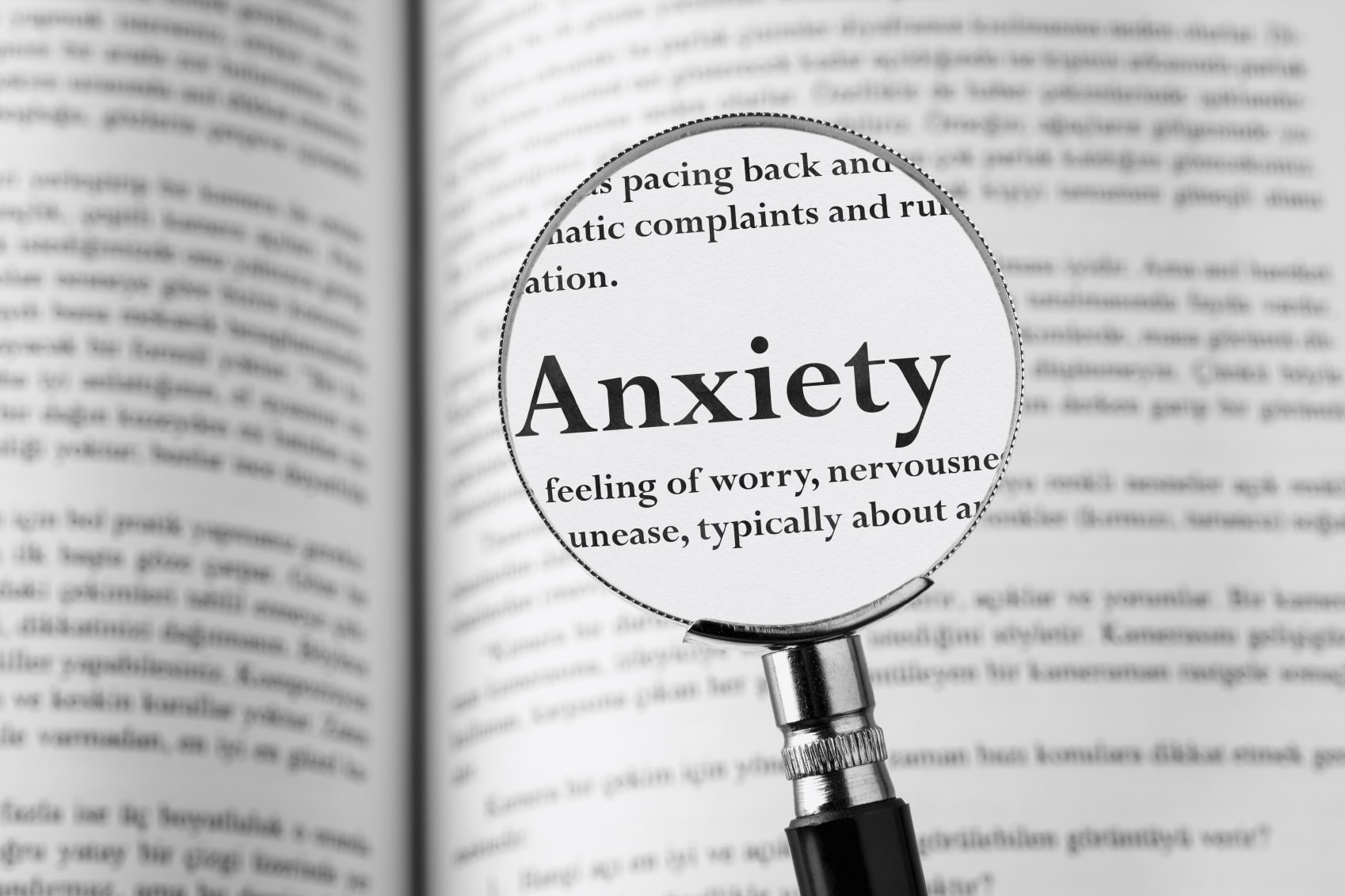 Anxiety is normal. It is a reaction to stress and signals that something is wrong. This is known as temporary anxiety, which is needed in our daily lives to correct the things that are causing stress. Anxiety is characterized by worried thoughts and feelings of tension. As well as physical signs , such as increased blood pressure and heart rate.
Anxiety is normal. It is a reaction to stress and signals that something is wrong. This is known as temporary anxiety, which is needed in our daily lives to correct the things that are causing stress. Anxiety is characterized by worried thoughts and feelings of tension. As well as physical signs , such as increased blood pressure and heart rate.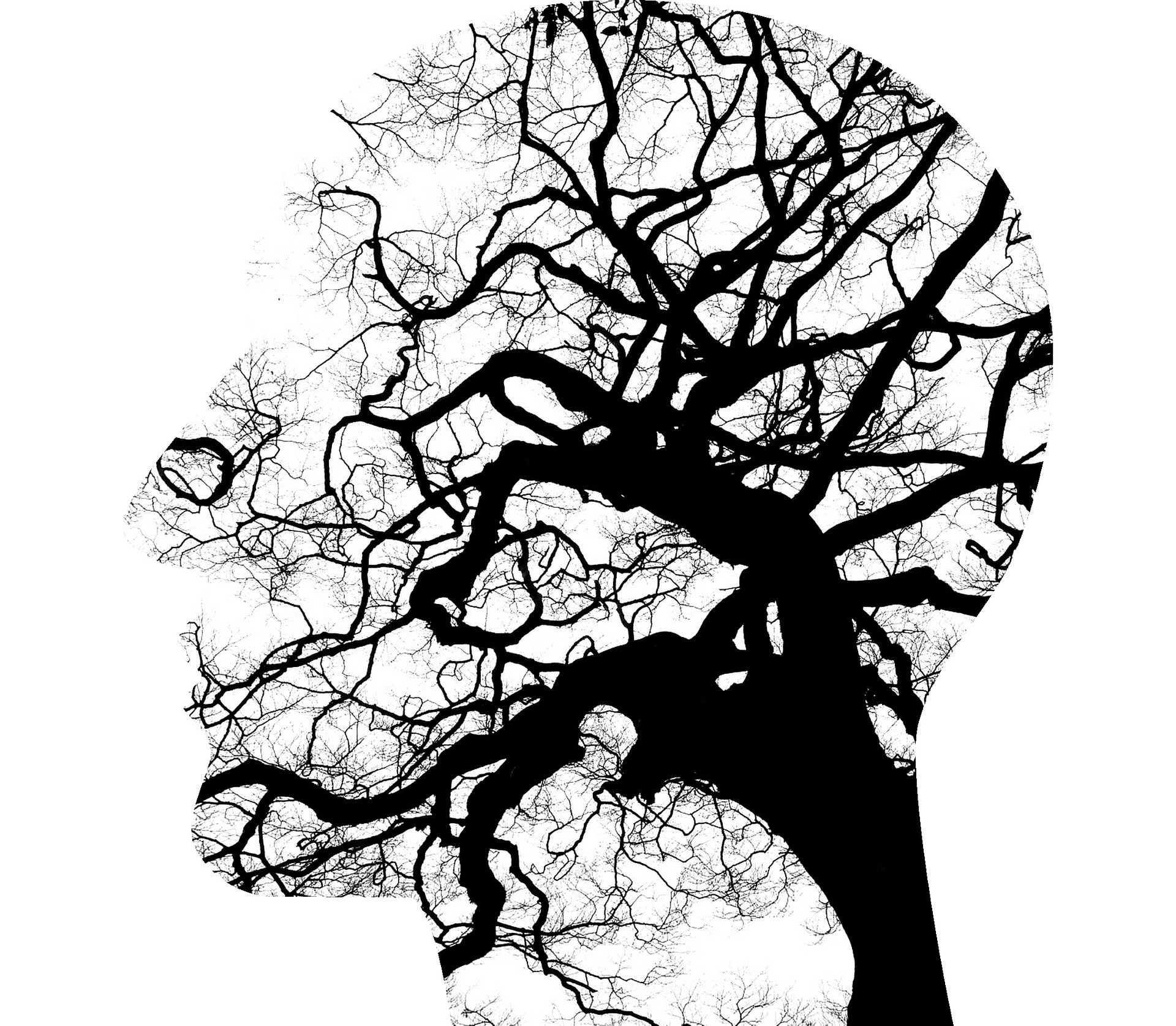 Generalized anxiety disorder (GAD) is exactly what it sounds like; anxiety that occurs over general, everyday events. It is also known as free-floating anxiety and is diagnosed if the anxiety persists for majority of days over a six month period. Individuals with GAD experience unprecedented, persistent, and excessive worry no matter the circumstances.
Generalized anxiety disorder (GAD) is exactly what it sounds like; anxiety that occurs over general, everyday events. It is also known as free-floating anxiety and is diagnosed if the anxiety persists for majority of days over a six month period. Individuals with GAD experience unprecedented, persistent, and excessive worry no matter the circumstances.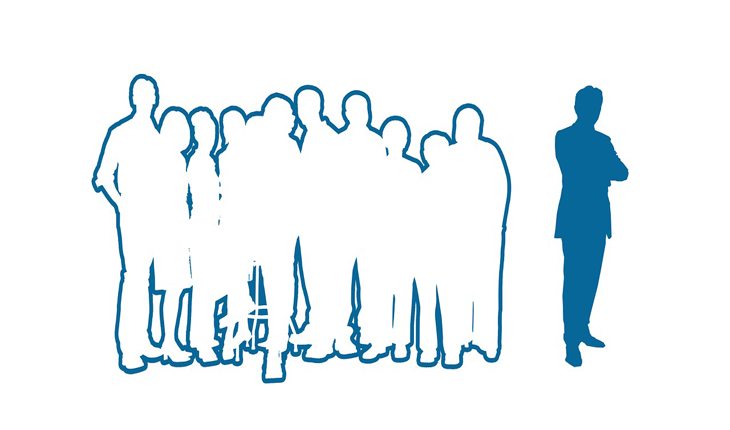 Everyone might think they have a bit of social awkwardness, but social anxiety disorder is much more serious. Unless you have a persistent fear of social situations or persons in which there are unfamiliar people, or you are subject to scrutiny, then you do not have a social anxiety disorder.
Everyone might think they have a bit of social awkwardness, but social anxiety disorder is much more serious. Unless you have a persistent fear of social situations or persons in which there are unfamiliar people, or you are subject to scrutiny, then you do not have a social anxiety disorder. Phobias are far worse than a small fear. Because phobias are irrational, persistent, and intense, regarding either objects, situations, or places. A phobia can be paralyzing in more ways than one. Symptoms include intense discomfort, anticipatory anxiety, avoidance of triggers, and panic attacks.
Phobias are far worse than a small fear. Because phobias are irrational, persistent, and intense, regarding either objects, situations, or places. A phobia can be paralyzing in more ways than one. Symptoms include intense discomfort, anticipatory anxiety, avoidance of triggers, and panic attacks. Obsessive compulsive disorder, whether mild or otherwise, is a very common, highly stressful, anxiety disorder. Individuals with OCD are severely impacted during the day, let alone at night. OCD specifically is a chronic pattern of unwanted, unreasonable feelings, ideas, thoughts, or sensations that cause an individual to perform repetitive behaviors (compulsions).
Obsessive compulsive disorder, whether mild or otherwise, is a very common, highly stressful, anxiety disorder. Individuals with OCD are severely impacted during the day, let alone at night. OCD specifically is a chronic pattern of unwanted, unreasonable feelings, ideas, thoughts, or sensations that cause an individual to perform repetitive behaviors (compulsions).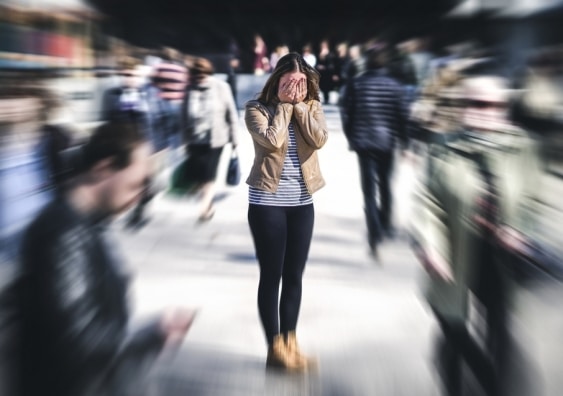 Of all the various types of anxiety disorders, panic disorder and panic attacks are the worst combination: severe and sudden. Panic disorder is characterized by panic attacks which can be heart palpitations, dizziness, shortness of breath, or even abdominal distress.
Of all the various types of anxiety disorders, panic disorder and panic attacks are the worst combination: severe and sudden. Panic disorder is characterized by panic attacks which can be heart palpitations, dizziness, shortness of breath, or even abdominal distress.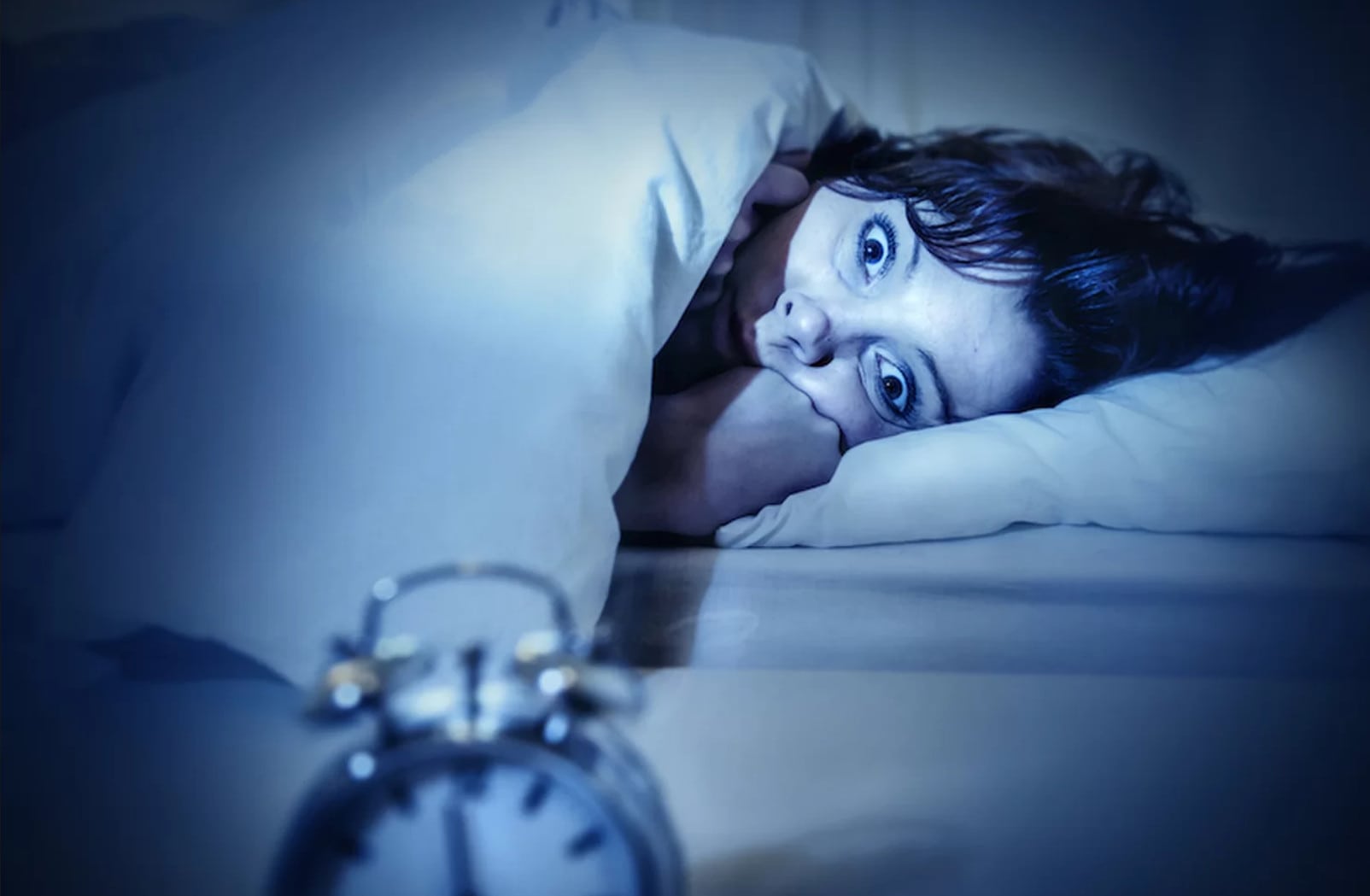 Even for individuals who are not affected by anxiety, it is no surprise how it affects sleep. Anxiety is not only racing thoughts, fear, stress, and worry, but can also cause physical changes that damage the ability to sleep and sleep well.
Even for individuals who are not affected by anxiety, it is no surprise how it affects sleep. Anxiety is not only racing thoughts, fear, stress, and worry, but can also cause physical changes that damage the ability to sleep and sleep well.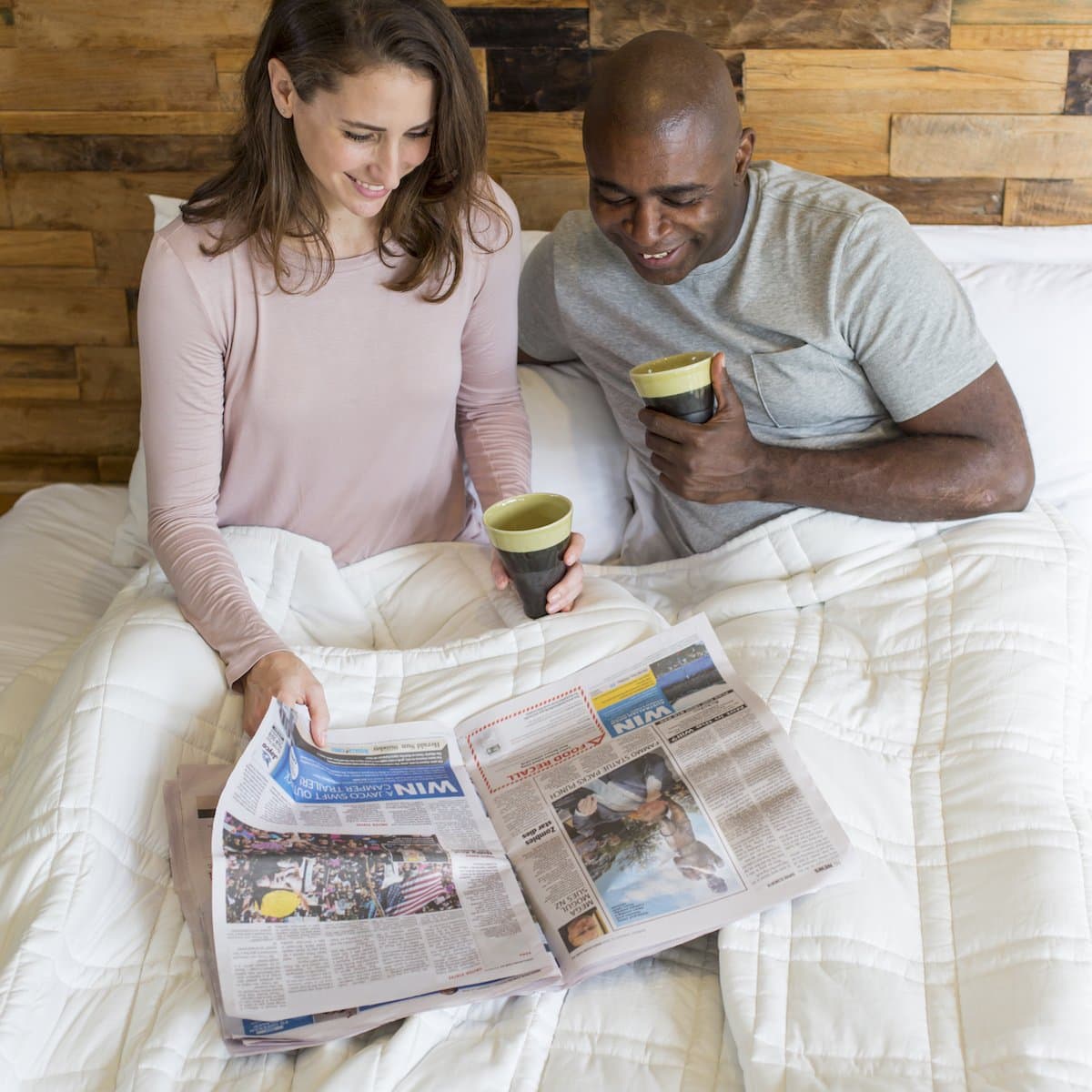 A weighted blanket is the closest thing to magic. You would not believe the way adding some weighted comfort over your body, actually lifts the heavy weight of stress that you have been carrying during the day. Weighted blankets are not just any blanket. They are specifically designed and filled with pellets or other filling, and created based on your weight and size, to wrap your body in the most comforting hug you’ve ever had.
A weighted blanket is the closest thing to magic. You would not believe the way adding some weighted comfort over your body, actually lifts the heavy weight of stress that you have been carrying during the day. Weighted blankets are not just any blanket. They are specifically designed and filled with pellets or other filling, and created based on your weight and size, to wrap your body in the most comforting hug you’ve ever had.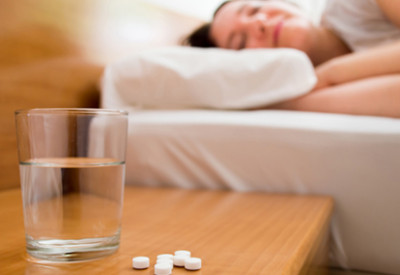 Melatonin is the natural supplement that sleeping pills wish they could be. Sleeping pills often have drastic, heavy side effects. While melatonin is an expert-recommended, completely natural supplement. In fact, the body already produces melatonin, especially at night and during sleep. The hormone is the main compound in your body that signals when it is the end of your day and time to settle down. For individuals with anxiety who suffer from insomnia and other sleep disorders, melatonin is an easy solution.
Melatonin is the natural supplement that sleeping pills wish they could be. Sleeping pills often have drastic, heavy side effects. While melatonin is an expert-recommended, completely natural supplement. In fact, the body already produces melatonin, especially at night and during sleep. The hormone is the main compound in your body that signals when it is the end of your day and time to settle down. For individuals with anxiety who suffer from insomnia and other sleep disorders, melatonin is an easy solution.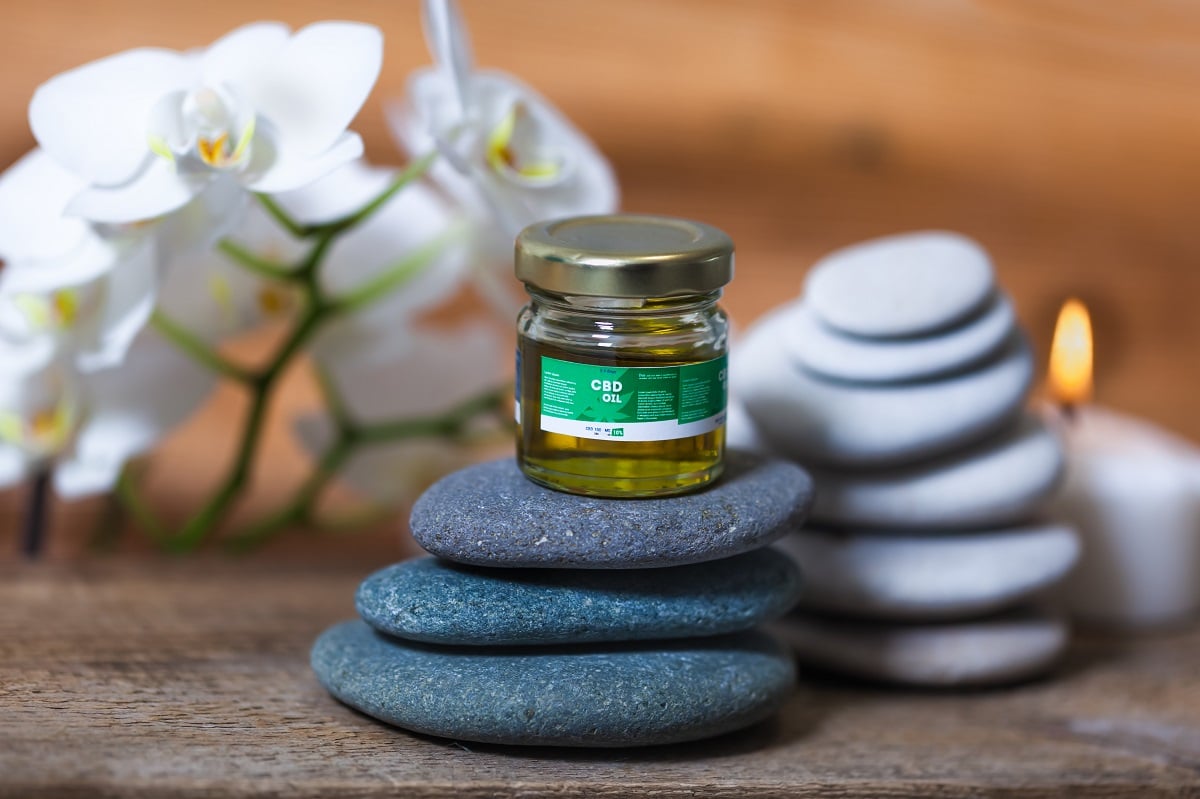 In most scenarios, cannabis and cannabis oils are too taboo to discuss. But if you are losing sleep over it, its time to make a change. Cannabis contains cannabinoids such as cannabidiol- or CBD. CBD oil is the specific compound within cannabis that has been studies for its therapeutic benefits in diseases and disabilities.
In most scenarios, cannabis and cannabis oils are too taboo to discuss. But if you are losing sleep over it, its time to make a change. Cannabis contains cannabinoids such as cannabidiol- or CBD. CBD oil is the specific compound within cannabis that has been studies for its therapeutic benefits in diseases and disabilities.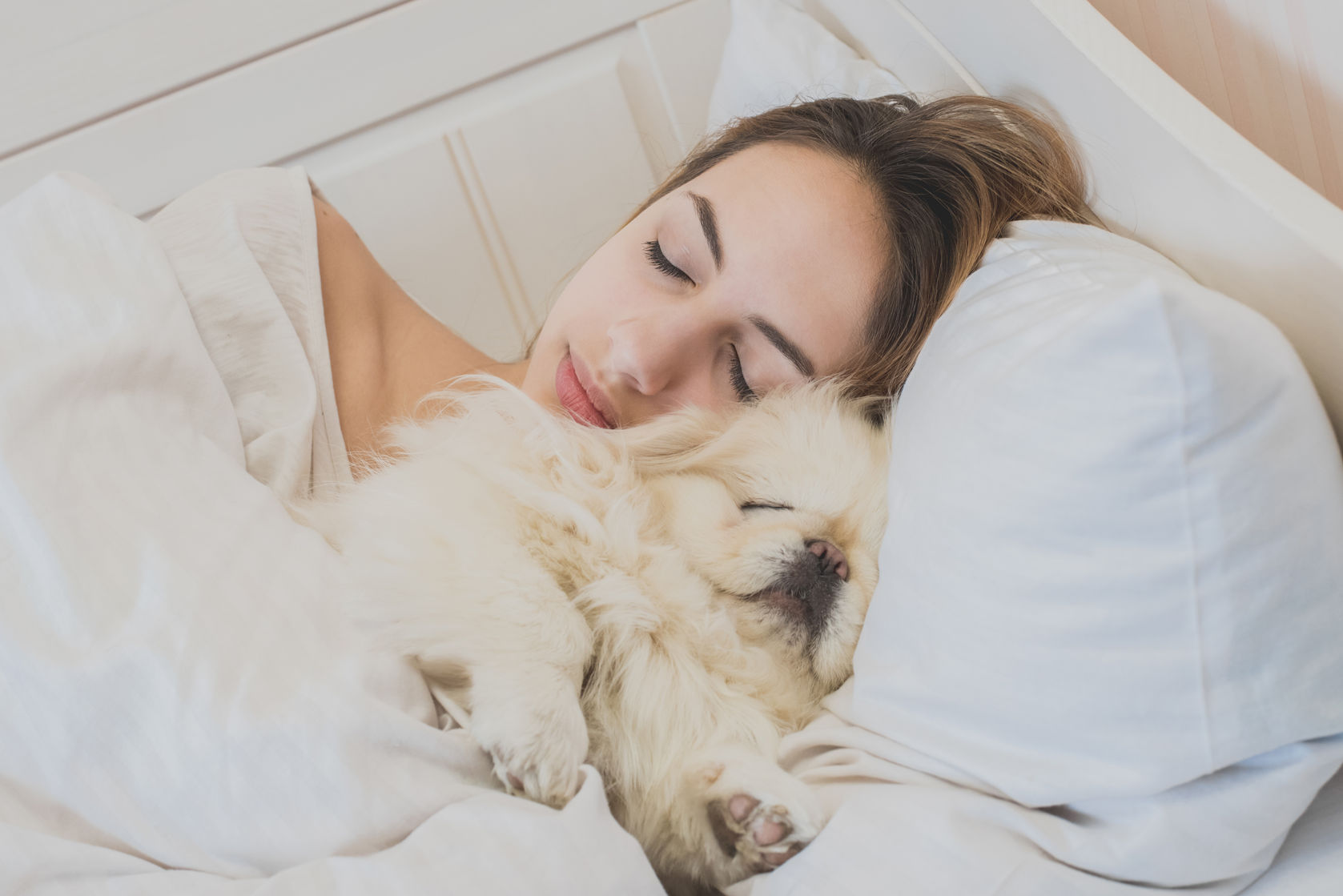 Being a good dog parent might actually decrease your anxiety and sleep disturbance. Although popular knowledge at one point assumed that it was harmful for both the person and the pet to co-sleep, recent studies conclude that this is no longer the case.
Being a good dog parent might actually decrease your anxiety and sleep disturbance. Although popular knowledge at one point assumed that it was harmful for both the person and the pet to co-sleep, recent studies conclude that this is no longer the case. If it sounds like exercise is the cure for everything, that’s because it is. During the day, exercise can ease anxiety by releasing endorphins, the happy hormones. And at night, while the goal is never to completely tire you out t the point of exhaustion, a little exercise does help you fall asleep faster and more soundly. Even something as simple as a brisk walk can do the trick. Just be sure not to exercise right before bedtime. We recommend morning and afternoon workouts for positive results for your sleep.
If it sounds like exercise is the cure for everything, that’s because it is. During the day, exercise can ease anxiety by releasing endorphins, the happy hormones. And at night, while the goal is never to completely tire you out t the point of exhaustion, a little exercise does help you fall asleep faster and more soundly. Even something as simple as a brisk walk can do the trick. Just be sure not to exercise right before bedtime. We recommend morning and afternoon workouts for positive results for your sleep.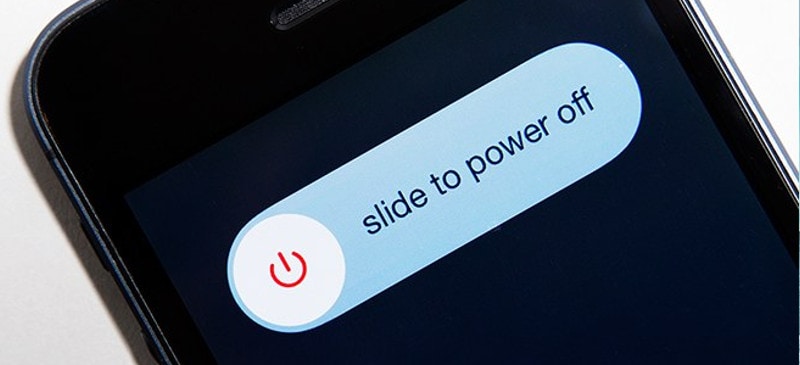 We have heard it all before. The reasons for limiting screen time before bed are limitless, but especially so if you have anxiety. For starters, expecting your phone to ring, or alert, or receive a notification in any way can cause anxiety itself. Then, if you actually open and read that email or text, preoccupations about work can create even more anxiety.
We have heard it all before. The reasons for limiting screen time before bed are limitless, but especially so if you have anxiety. For starters, expecting your phone to ring, or alert, or receive a notification in any way can cause anxiety itself. Then, if you actually open and read that email or text, preoccupations about work can create even more anxiety.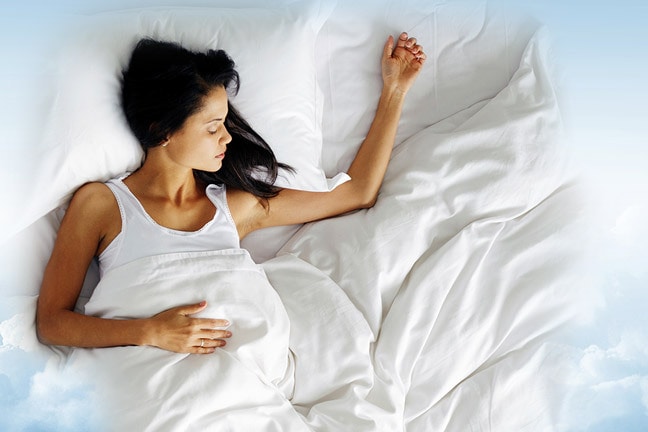 No one messes with your sleep, not even your own anxiety, and if you’re here its likely because you’ve reached the last straw. We all experience a few sleepless nights when we have too much on our plates to handle. But those with clinically diagnosed anxiety have it the worst. Anxiety is sudden, uncontrollable feelings of worry or stress that cannot be calmed or cured by rational thought.
No one messes with your sleep, not even your own anxiety, and if you’re here its likely because you’ve reached the last straw. We all experience a few sleepless nights when we have too much on our plates to handle. But those with clinically diagnosed anxiety have it the worst. Anxiety is sudden, uncontrollable feelings of worry or stress that cannot be calmed or cured by rational thought.